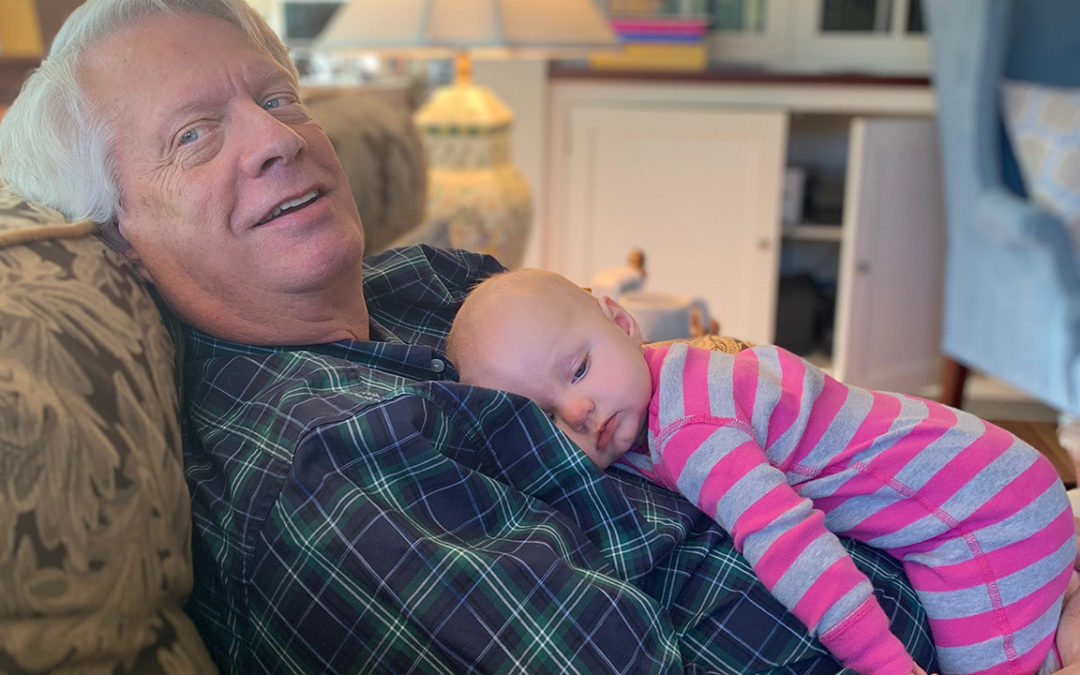
by Robert Bowie, Jr. | Nov 12, 2019 | Featured, Politics
So this is what an old progressive thinks he learned from his granddaughter:
Last Sunday afternoon, before my visiting daughter and son-in-law went off to the 8:00 PM Ravens/Patriots game, I volunteered for the early morning shift of “baby duty” the following morning, so they could sleep a little later the next morning.
When Ann, my granddaughter, woke up at 6:00 AM, I fed her her first bottle of the day and we settled into the couch to read a book as we listened to a little Oscar Peterson.
Ann is a very mellow child — unless she is bored. When she is bored, she will cry a little until you introduced her to something new for her to look at or listen to.
When reading books finally didn’t do the trick, we cruised the house looking at artwork and the photographs on the shelves. She was verbal in her approval and remarkable in her concentration.
After a while, we returned to the couch and she bounced gently on my knee to Oscar’s rhythms until she fell asleep in my arms, her head on my chest.
Although we have known each other for her first six months, that morning something had changed. I had listened to her and she had trusted me enough to go to sleep as I was holding her.
We all live under a set of laws which are enforced in different ways. The government issues tickets for speeding or going through a stop sign, but the rules of the road are enforced by indignant drivers who honk their horns.
Nationally, we are punished for violations of federal laws or state laws, but in much of our country also, for violations of “political correctness.” The first two are enacted by our legislatures and interpreted by our courts. The third is the law of a progressive culture, and the rules of this road are now also enforced by the indignant. For them, it is as it is on the highway. There is no appeal for those who they judge to violate these rules, other than an extended middle finger.
Many of the front runners in the Democratic party, with the best of intentions, seek to codify many of these rules. They are indignant at those who wrongly disagree about America’s history of immigration, climate change, universal healthcare, women’s rights, and the rights of gay and transgender people. They have passionate supporters who look down their nose at the “undereducated,” who do not understand the new and better rules of the road.
When Alice and Rick, my natural children, were born they were “my” children and I demanded that I hold them almost immediately after their birth. There was a genetic bond from the start. But with my granddaughter, she is once removed and it was up to me to earn my place in “her” family. With both, I was equally as paternalistic and well-intended, but the relationship was different.
It is easy for a political party to advocate the “obvious” good intended for our country and its people, but how that message is received is the issue, particularly when these rules are seen to threaten the livelihood, safety, and patriotic beliefs of the unconverted.
Further, this intolerance makes it easy to drive a wedge between the two sides and demonize the believers in order to polarize the fearful.
The most effective advocacy starts with listening and empathy if you want others to be part of your family and you want to be part of theirs.
My granddaughter had a voice, if not words, and I had to win her respect and trust. If I had imposed my effort to teach her reading, or required she love the genius of Oscar Peterson, that trust would never have developed as it did.
We are not enemies. We are Americans that disagree. Trusting enough to listen may get us what we want.

by Robert Bowie, Jr. | Nov 5, 2019 | Featured, Politics
As the pendulum swings we run out of time.
You know that old joke about if there is one lawyer in town he will go broke but if there are two they both get rich? I keep thinking that’s how our political parties presently work.
But what is wrong with good old American “enlightened self interest”? I mean the two lawyers are not evil or anything. They didn’t intentionally get rich. Same with our political parties.
It is convenient that there are two sides to every conflict, which could potentially become volatile and polarize us — hot button “call to action“ advertising helps but “propaganda” and “false news” really works great! Gerrymandering is just organizing and expanding the zip code of the client base when the holiday cards go out.
Somehow politicians go in poor and end up rich when they come out. How does that happen?
Almost five years ago, to the day, I ran for office in a gerrymandered Republican district and got crushed. I believed back then the people in my district would recognize that the gerrymandering by our politicians was starting to be responsible for the polarization of our country. We knocked on almost 7,000 doors. When I dropped off my literature, I talked to the people I met and almost every time, we joked and enjoyed each other’s company until I was asked, “Republican or Democrat,” at which point the door was slammed in my face.
The polarization now is much worse than when I ran, because it affects not only our country but our place in the world and the “moral authority” we have championed since the Second World War as “leaders of the free world.”
Last month, with the knee-jerk fulfillment of a campaign promise from our last polarized election, we abandoned one of our most loyal allies, the Kurds, who suffered over 11,000 casualties in our battle to eradicate ISIS in northern Syria (we supplied mostly air strikes and lost almost no soldiers). Now we are no longer able to claim to be their trustworthy ally:
Victoria Nuland, who spent more than three decades in the U.S. Foreign Service as a top Russian policy expert and representative to NATO, Ukraine, and Europe during the administrations of George W. Bush and Barack Obama, recently said in an interview with the Harvard Gazette:
“When you are an unreliable ally, then countries and leaders around the world who have bet their security by being on your team have to start hedging their bets and developing multiple relationships… We’ve already felt it vis-à-vis our ability to influence Turkey’s behavior; we’re certainly going to feel it now in Iraq. Israel has been hedging for quite some time in terms of its relationship with Iran. And you see it in other aspects of U.S. foreign policy. Why should the Germans listen to us when we say, “Don’t deepen your economic and information relationship with China?”
It would seem that this must eventually affect every aspect of our life including how safe we feel at home and the cost of the international products we buy in our stores.
Under the constitutions, state and federal, our politicians control the shape and parameters of the political districts from which we elect them. This could obviously be a very powerful tool to make sure that they get elected in a greater proportion than what would otherwise be appropriate.
The Supreme Court has had numerous chances to address gerrymandering but has refused to do so: “Partisan gerrymandering claims present political questions beyond the reach of the federal courts,” Chief Justice John Roberts ruled in a decision that split the court 5-4. He was joined in the decision by Justices Clarence Thomas, Samuel Alito, Neil Gorsuch and Brett Kavanaugh, the court’s conservative wing. Polarization in the Supreme Court, too?
The real trouble is polarization cuts both ways. The Supreme Court, with this ruling, has determined that the Democratic Party in Maryland can constitutionally keep Republicans from having equal representation in the State of Maryland.
According to the Republican appointees to the Supreme Court, our politicians and political parties control our democracy, we don’t.
So what do I suggest? Before that second lawyer moves into your neighborhood, run out the first one. Then meet somebody with whom you disagree, discuss your differences, learn again how to listen, and then figure out a compromise together and do what only you can do. Overturn the Supreme Court and vote out any politician who won’t overturn gerrymandering, and by so doing, help make America great again!
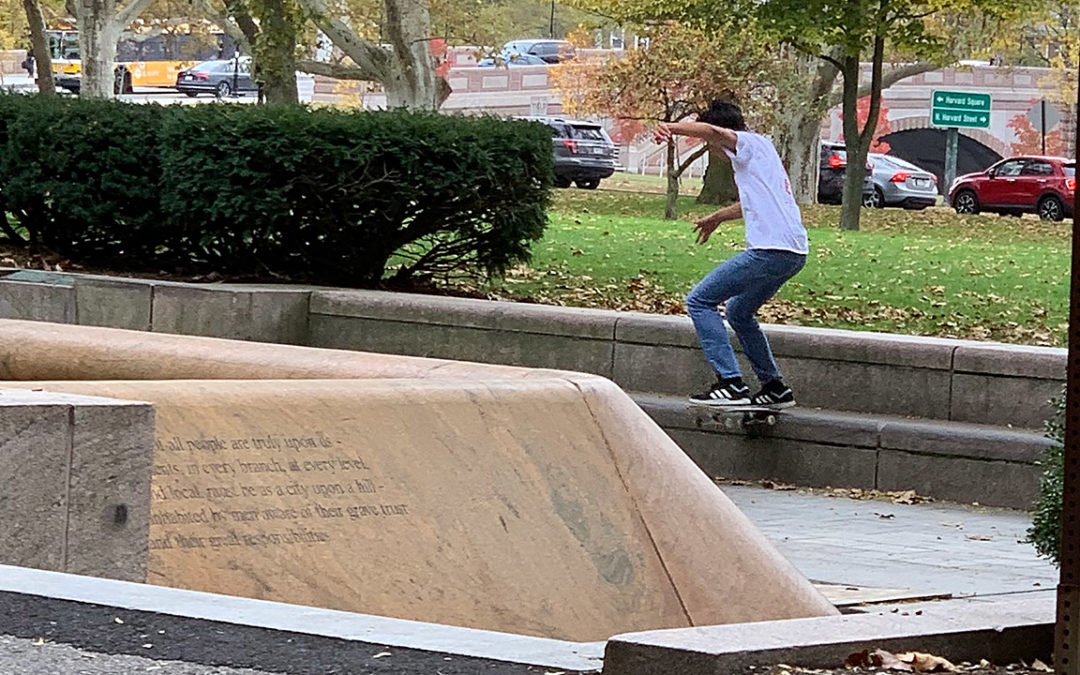
by Robert Bowie, Jr. | Oct 29, 2019 | Featured, Personal
Last Friday, I skipped lunch and went back to my Boston hotel room to watch Congressman Elijah Cummings’s funeral on TV.
Thirty-five years ago, when he was still a lawyer, we had a case together. I was representing a modular building company and he was representing one of the prominent African American churches in Baltimore, which had contracted with my client to buy and construct a building for Baltimore city primary school students.
Elijah and I met on the top floor of the church overlooking North Avenue where the ministers’ offices were located. He came over, shook my hand, and said, “I do a lot of criminal law and you know a lot more about business law than I do. Can we agree to work to make this fair for both sides?” I shook his hand and agreed that would be our objective.
The contract negotiations and construction took some time. As the building went up, there were adjustments to the plans and “change orders,” as there always are in construction cases, but we were candid with each other and each time we got it right.
Years later, I was at the Democratic convention in Boston and he saw me and came over and with a big smile he said: “Yeah! We learned to work well together didn’t we?” We both laughed.
I grew up in Cambridge, Massachusetts, and one of my favorite places is an old rusted fountain dedicated to John F. Kennedy. It no longer works but still has his quotes chiseled on its sides.
My hotel was in Harvard Square, so after the funeral I walk down to the fountain and read the quotes again:
“Today the eyes of all people are truly upon us — and our governments, in every branch, at every level, national, state, and local, must be as a city upon a hill — constructed and inhabited by men aware of their grave trust and their great responsibilities.”
Next to the forgotten monument was a sign that said: “No Skateboarding.”
No one was there except a skateboarder, practicing and re-practicing his art, and me.
It occurred to me that there are always laws which will be broken but we all, somehow, are subject to a deeper code. This was what Elijah understood.
Thousands of people, whether in the church or on TV, watched Elijah’s funeral. They watched and listened and were there because Elijah was an example of something we seem to not be able to forget.
Although in our daily lives and in our politics and governance it is sometimes lost, it is there in that handshake, that eye contact, that second thought that reminds us that it is as constant as gravity.
I saw Elijah on and off after that, in airports or at campaign events. He had become my Congressman. We would smile or wave. We were not friends, but we had once come to an understanding because he had offered up his vulnerability so that I could offer mine. And we could trust each other just long enough to do something right.
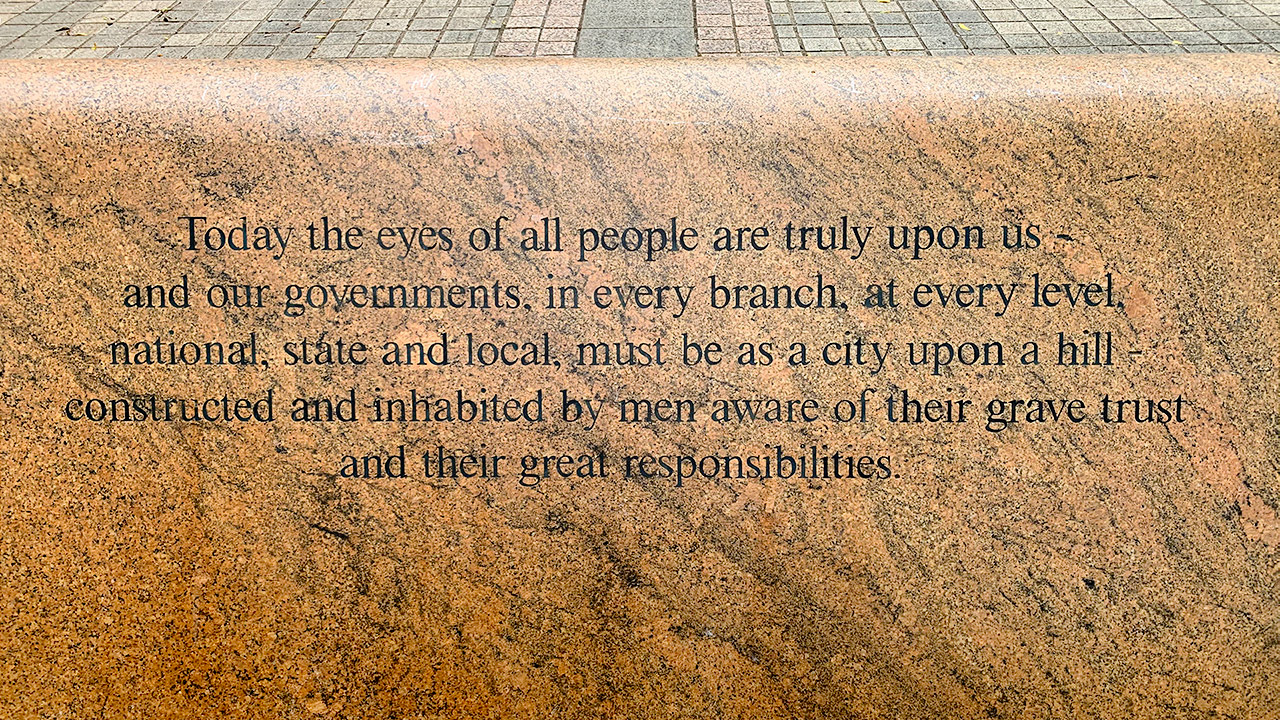

by Robert Bowie, Jr. | Oct 22, 2019 | Featured, Poetry
Working on the libretto for the operetta, Vox Populi, has brought me back to my love of poetry.
My favorite poems create a universe with a few words. Two good poems with a similar subject, put side by side, can introduce the creator of the other.
Like a painter organizes color and shape with his or her brushstrokes, the poet organizes a vision with the sound and rhythm of words:
“Whose woods these are I think I know./
His house is in the village though;/“
The brushstrokes? The sound and rhythm of these two lines? Speak them out loud. They are like the rocking of a hammock they are so smooth and quiet.
In complete contrast however:
“I sought a theme and sought for it in vain,/
I sought it daily for six weeks or so./“
Brush strokes? This is not like the rocking of a hammock, it is like riding a three-legged horse.
Those are the opening two lines of two completely different poems by two completely different people. Now let’s look at the last two lines of these two poems.
“And miles to go before I sleep./
And miles to go before I sleep./“
Brush strokes? The same rocking hammock. Compared to:
“I must lie down where all the ladders start,/
In the foul rag-and- bone shop of the heart./“
That must’ve been a hell of a rough ride? You are correct.
They are both about the end of life. The first by Robert Frost is entitled “Stopping by Woods on a Snowy Evening” and the second by WB Yeats is in titled “The Circus Animals’ Desertion.”
Both are about “acceptance,” it seems to me, but that acceptance comes in completely different, very personal forms. Frost’s, in a late evening snowy New Hampshire woods, and Yates’, with the casting off his “Circus Animals” (his life’s work of Irish themes).
The libretto for the operetta is meant to be baudy and entertaining. My poetry, on the other hand, is a personal statement that is directed from me to the reader. It’s from my heart.
I have placed links to both poems below for your review and your own contrasts and conclusions. Feel compassion for these two people. They are writing because they are reaching out to you.
“Stopping by Woods on a Snowy Evening” by Robert Frost
“The Circus Animals’ Desertion” by W.B. Yeats
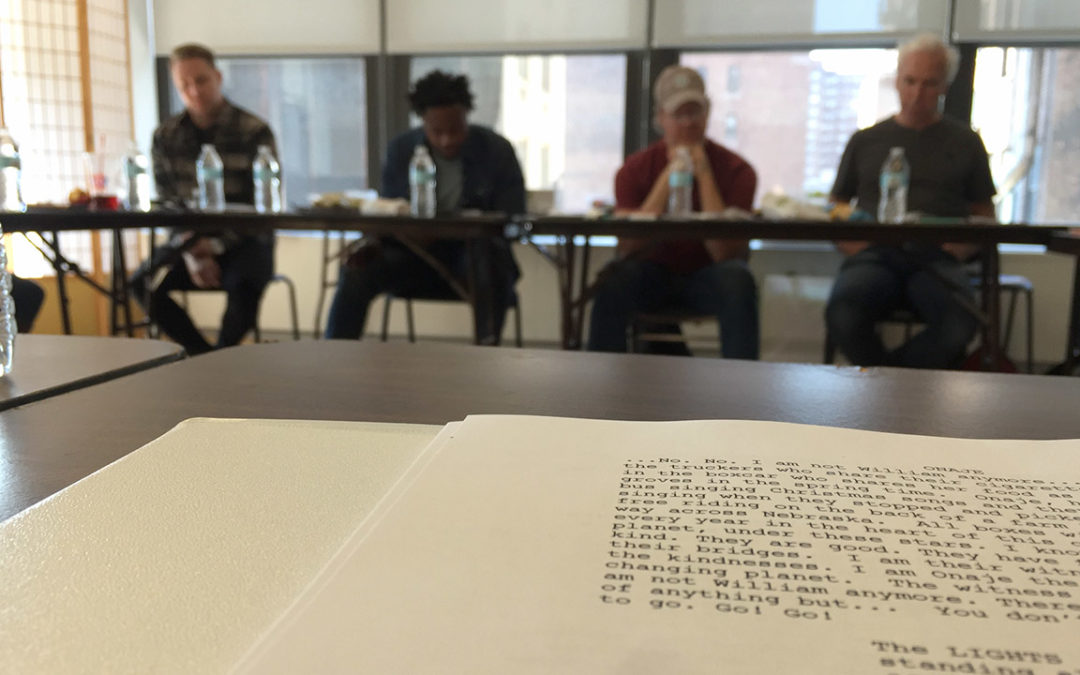
by Robert Bowie, Jr. | Oct 8, 2019 | Featured, ONAJE, ONAJE Update, Operetta
Ever since I finished the operetta with Christian in beautiful San Miguel, Mexico this August I have been having withdrawals. I have been waking up laughing from nightmares because they are in perfect Hallmark Card couplets:
“Happiness is when all your dreams come true/ ❤️❤️❤️
And become the job you really want to do./” ❤️❤️❤️
Instant dry heaves. What has happened to me? I can’t go back to sleep after something so sappy/awful as that. Probably because I’m afraid to… What is my mind trying to tell me? And I think it is permeating other aspects of my life!
“It also seems to happen when, without regrets/ ❤️❤️❤️
You start a blog and confess to dreaming couplets./” ❤️❤️❤️
Terrible! Terrible! OKAY! Think deep! What could be the cause of this?
Last Tuesday at noon on the eighth floor of the National Opera Center at 7th and 29th, I found myself looking out the window as the actors and Kevin R. Free were entering the room behind me. I should have been nervous.
I had reworked the script with Kevin and he had called for a table read to try it out with many new actors he had chosen. The room was on a corner of the building, so I had a view of 7th Avenue heading north and 29th west. From the eighth floor, even the traffic jams and people zigzagging past each other on the street below seemed to provide a calm order which I took for granted.
Kevin took control and the reading began. I decided to just listen. Predictably, but quite remarkably, the gifted actors brought the story from the page and built the characters and the relationships with their inflections. I was hooked. Every one of them was brilliant. They give a new draft its birth.
After discussion and feedback, Kevin, his agent John Essay, our producer Sue Conover Marinello, and I went next door for a drink and quick dinner.
The actors had universally loved the new rewritten play and those who had performed it before had said the already successful play had been substantially improved. Kevin, John, and Sue agreed and made wonderful additional suggestions. Only then did I realize, both the script and I had been on trial.
Being nervous would have been more than appropriate. But somehow the suggestions, the collaboration, and the successful result all were just steps heading for the more perfect production. Ok — so why am I dreaming in the language of heart-throbbing greeting cards? ❤️❤️❤️
The night before, I had been lucky enough to have dinner with Christian. He confirmed that in the second week of November he would have rehearsals of several of our songs for the operetta and then do a recording of them for marketing purposes. We discussed a new opera that he wanted me to sketch out. It all seemed so natural.
I decided to stay another night so I could see and study “Hadestown” which was chosen as this year’s best musical on Broadway. Christian had told me how much he liked and respected it. Without a second thought, I felt it was important for me to stay and study it.
That night after the theater let out, I walked through Times Square to get home. There were mobs and mobs of people taking photographs of each other below a massive screen, which showed the riots in Hong Kong in the constantly bizarre flashing neon that lit up the remainder of night. I felt oddly detached but quite comfortable.
The next afternoon on the way home, I chose a seat on the train that would allow me to look at the town of Havre de Grace as we crossed the river back to Baltimore. The sun was warm through the windows as it occurred to me: maybe all of this was normal. Maybe it was, just as I dozed off…
“Happiness is when all your dreams come true/
And become the job you really want to do./”
And then again, I couldn’t believe it! What is happening to me? I woke up laughing. ❤️❤️❤️
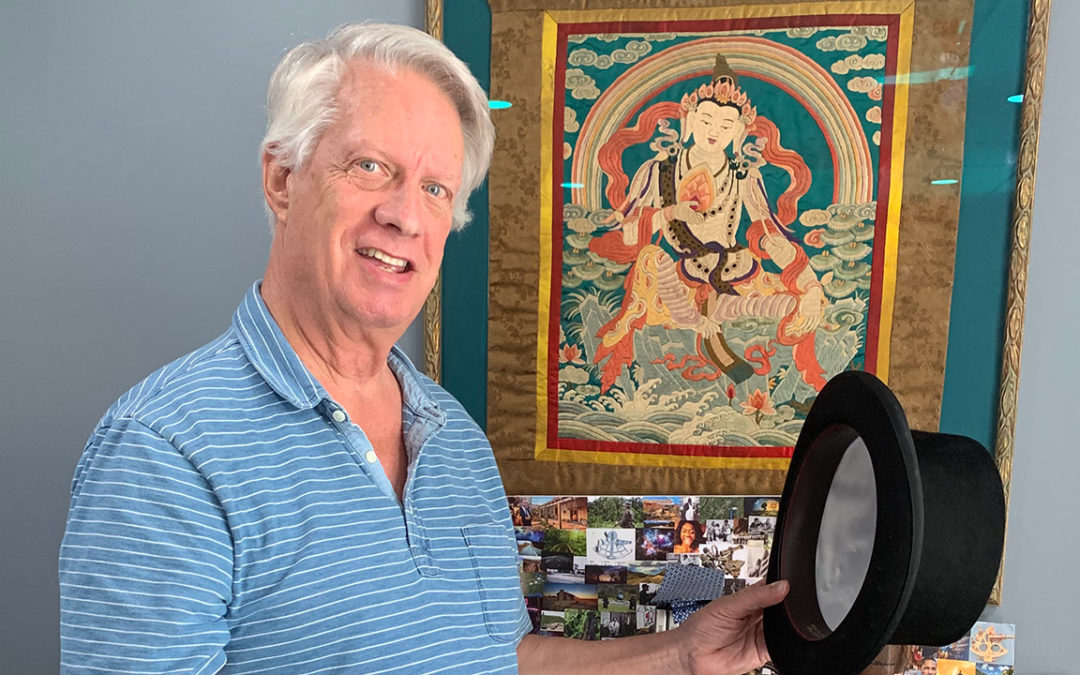
by Robert Bowie, Jr. | Sep 24, 2019 | Featured, ONAJE, ONAJE Update, Operetta, Plays, Travel
So his fool tells King Lear: ”Thou shouldst not have been old till thou hadst been wise.”
I am 72 years old today and one step further into my next life. No not the afterlife… the next step and the opportunity of freedom which that entails. As it’s my birthday, I hope you’ll allow me this time to reflect…
I decided to start this blog several years ago to chronicle what would happen to me in retirement. I loved the practice of law, but concluded that there is a time to retire before you get in people’s way and can’t find the bathroom. I wanted to stay a little bit ahead of that curve so I got out early.
I already knew that eccentricity and determination always trumps a loss of intelligence. So this was my chance to be free to try something entirely different, but I still was not free of trepidation. Delusions of grandeur are a wonderful thing until you start to think you might act on them.
Nonetheless, I first decided I would become a “political force” as a Democrat in an entirely gerrymandered Republican district because I was very concerned about how we, as a country, were being divided by political forces and I was going to change that. This was Trump country. I raised more money than all my Republican opponents combined and knocked on almost 7000 doors for more than a half a year. I was resoundingly defeated and Trump became our president.
Because I obviously had learned nothing about impossibility, next I decided I would become a professional playwright. I bought a Shakespeare coffee mug and applied to the Yale Drama school, fully believing that I would be the oldest applicant ever accepted to Yale’s drama school. I succeeded only in becoming the oldest applicant ever rejected by Yale’s drama school. Nonetheless, I had decided this is what I wanted to do.
Obviously I had to rethink this thing again, with just a little more of my failing intelligence. So I applied to the Commercial Theater Institute (CTI) of New York for a class in producing theater. I had a plan. When the first morning of class broke up the students got lunch and inevitability they talked about what plays they were considering producing. When it came to my turn to talk I informed them I wasn’t considering producing anything. I wanted them to produce me. It worked. The impossible happened. A young producer agreed to read my work, liked it and arranged for professional staged readings in San Francisco and later in New York.
Because I had excelled in something I didn’t want to do and I had completed an introductory class in it, I applied for an advanced class in producing at the prestigious O’Neill Conference in Waterford Connecticut. I got in and there I met Sue Conover Marinello, who produced my play Onaje with great success last year in New York, and Christian De Gré Cardenas of Mind the Art Entertainment who has an amazing history of producing and also writing the music for a number of amazing operettas in New York. Both became friends.
After Sue Conover Marinello’s production of Onaje in New York, Mind the Art commissioned me to write the libretto for an operetta, Vox Populi, a comedy about the seventh deadly sin of pride, for Christian’s music. Last month, Christian and I completed the operetta in San Miguel Mexico.
Because Onaje had done so well, Sue convinced Kevin R. Free, the wonderful NYC director, to read the script. Kevin had fresh and original insights which lead to my reworking the script and his commitment to direct its next production.
The blog has become a happy travelogue. It is a history of mistakes and opportunities. It has taught me that even though I may not succeed in any of this, I’ve lost the fear of failure and each day is more fun than the last. The next step into a new thing is the hardest thing I ever do but it is getting easier with age.







